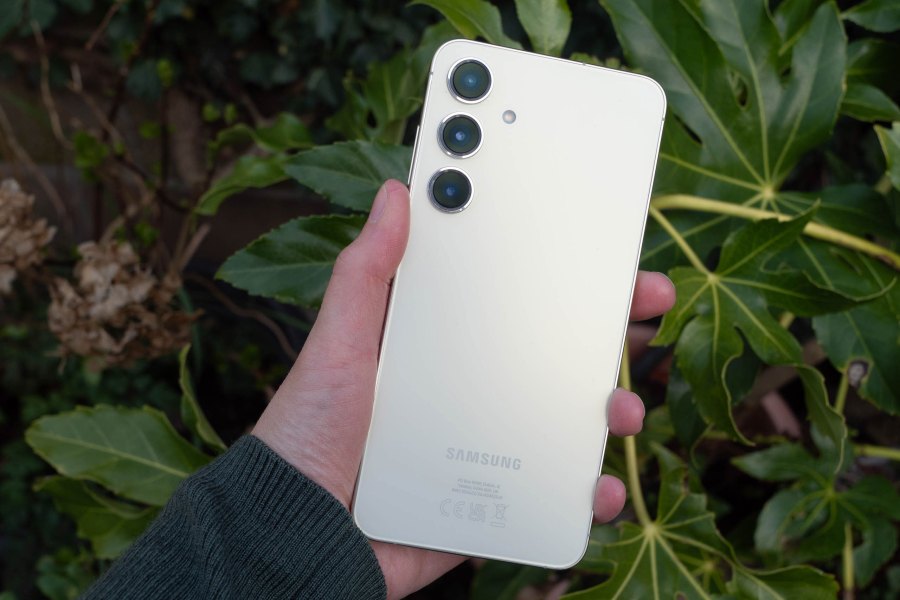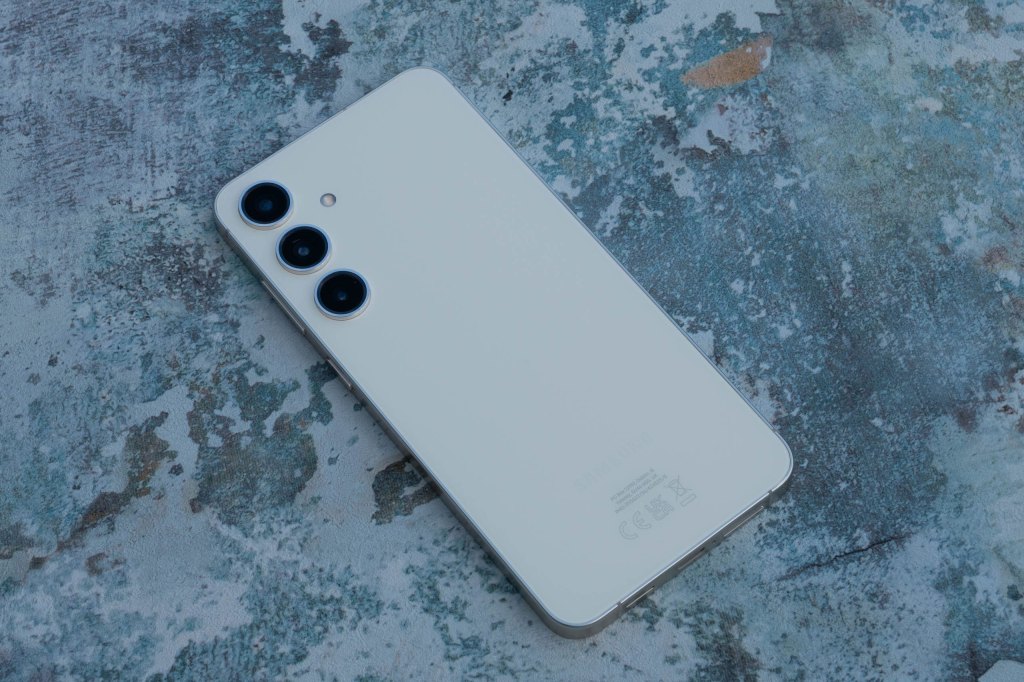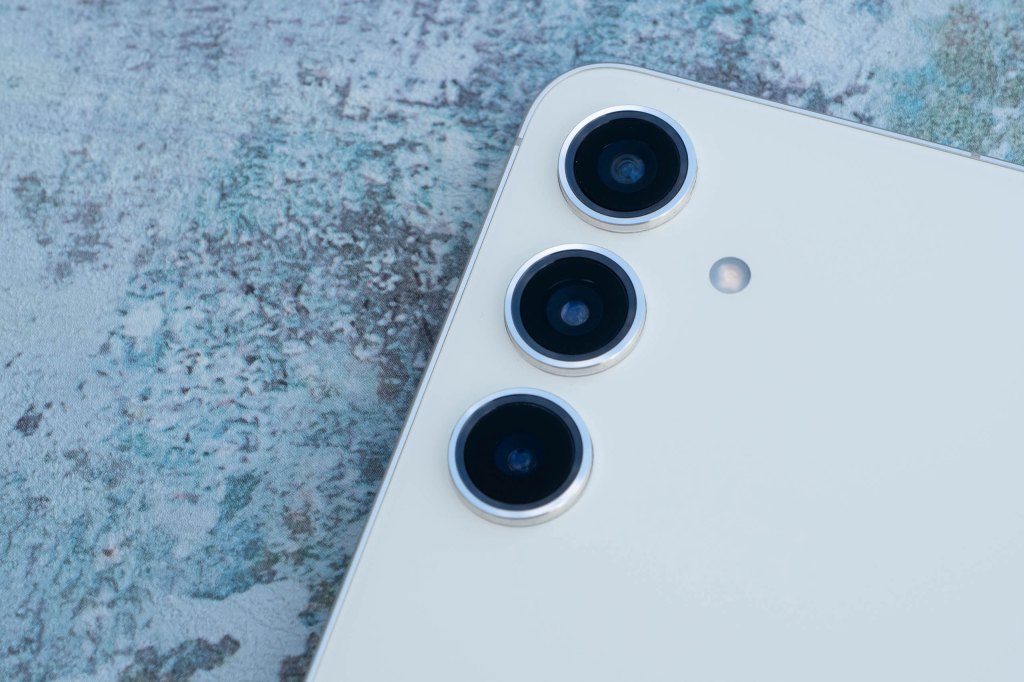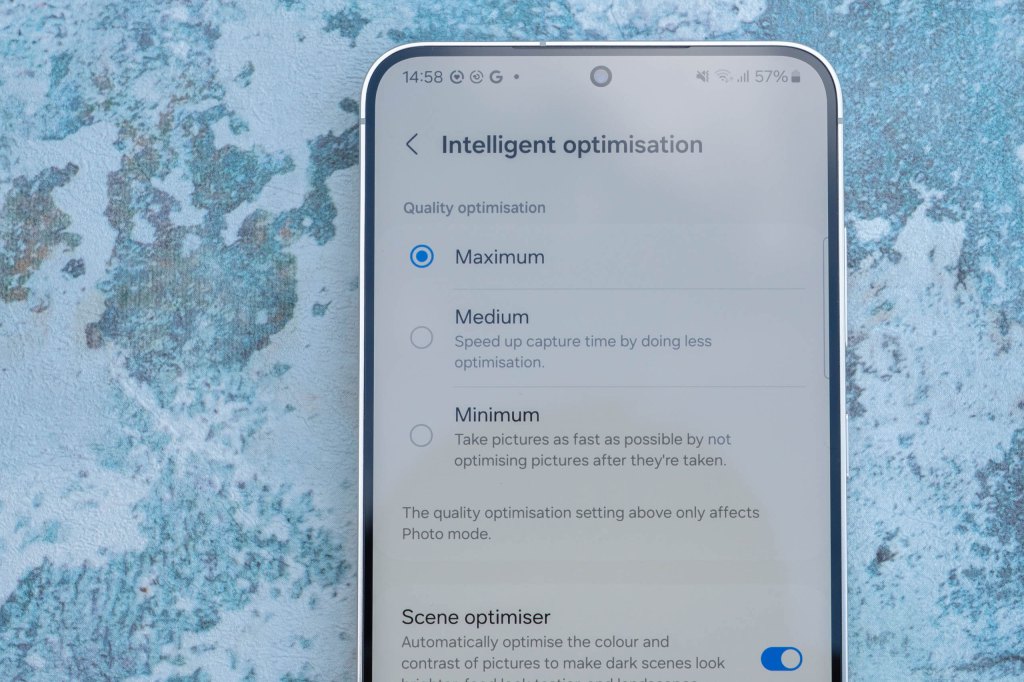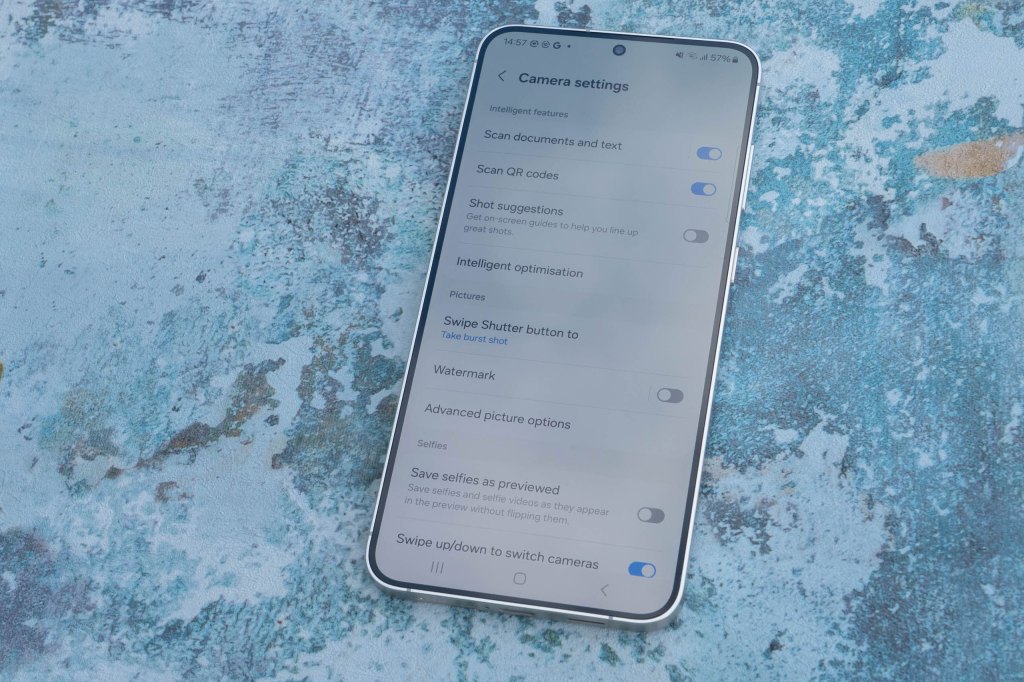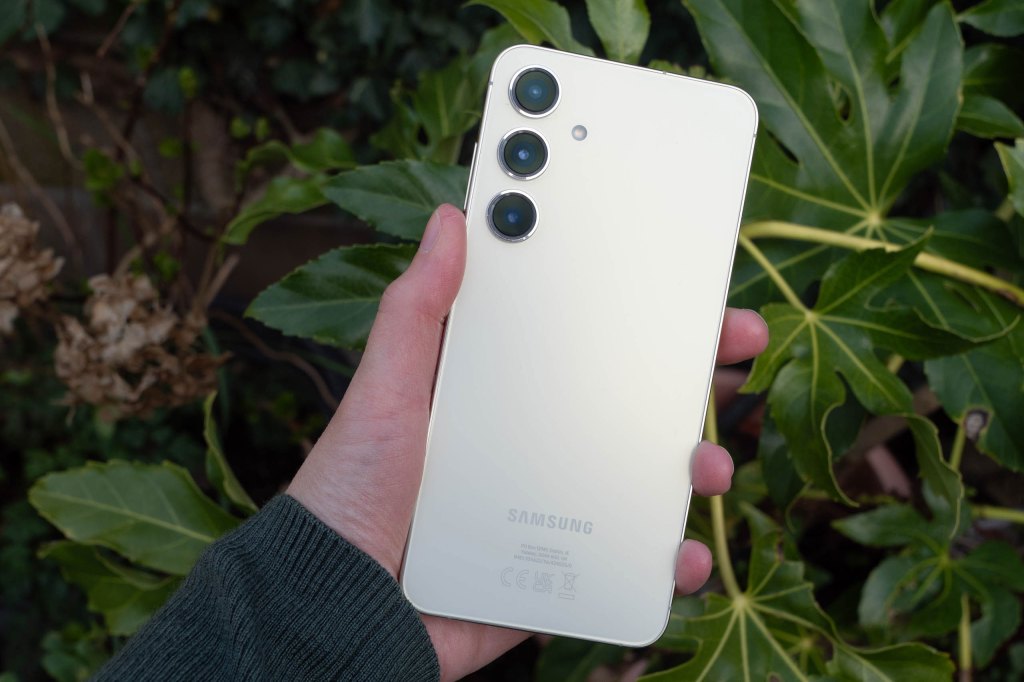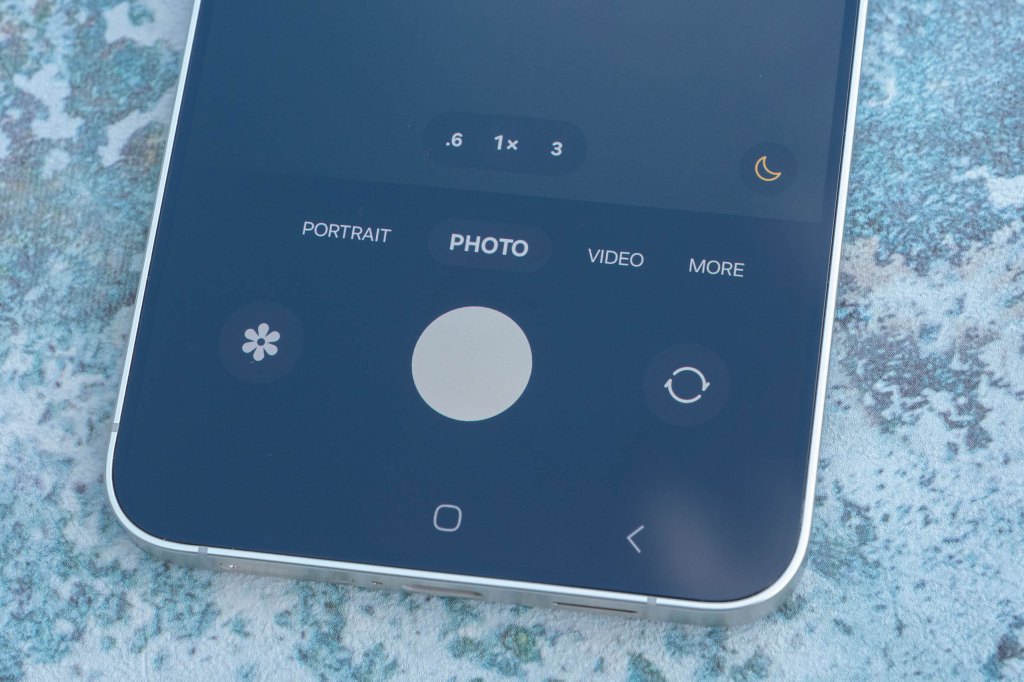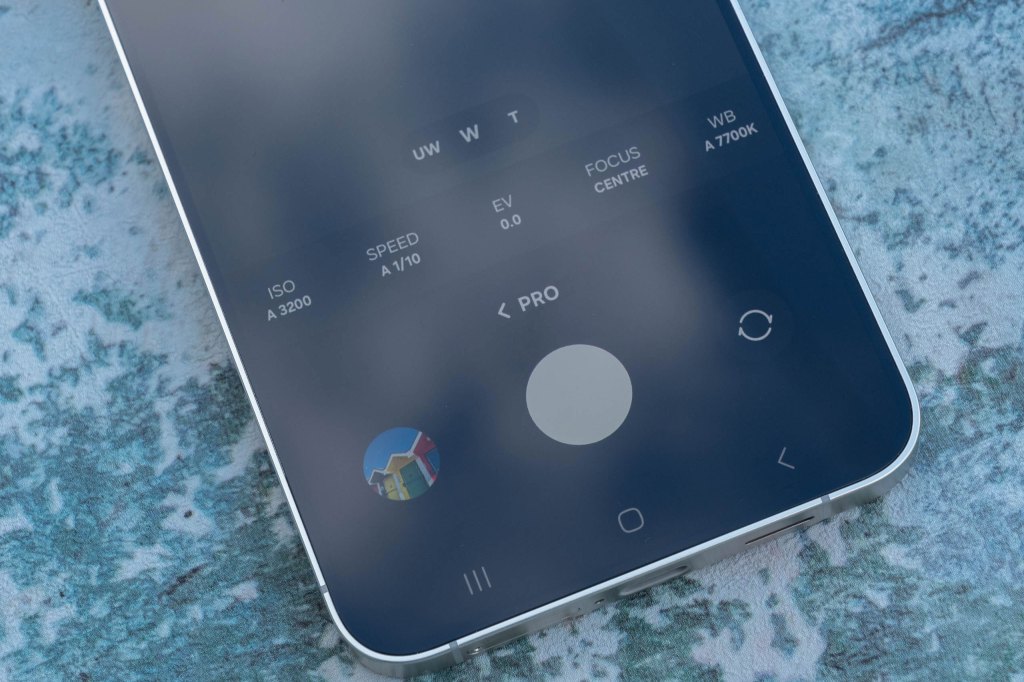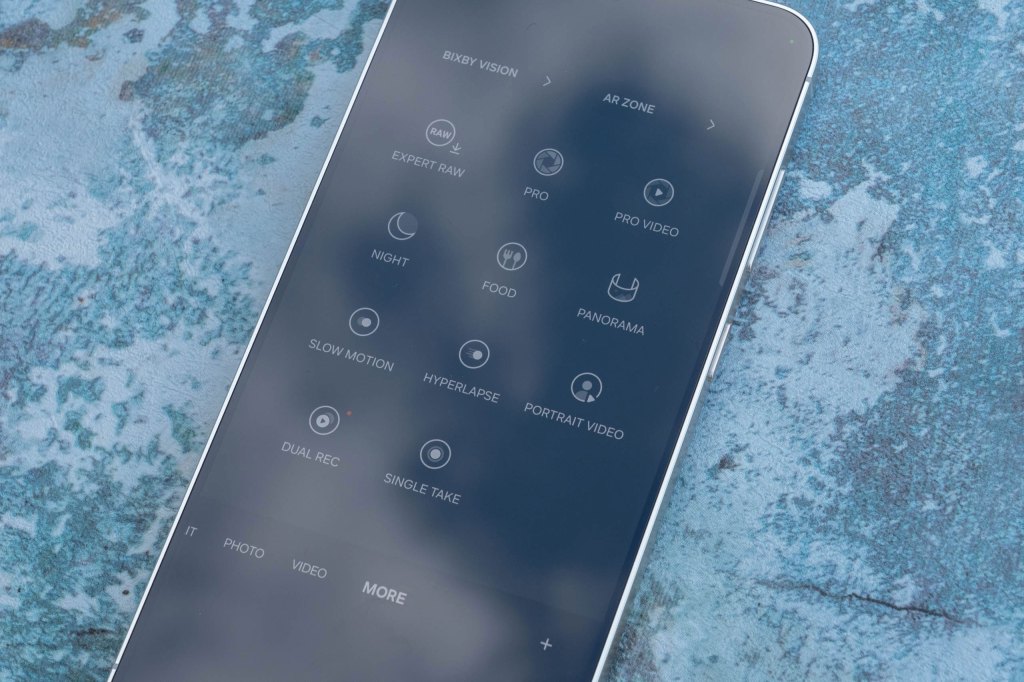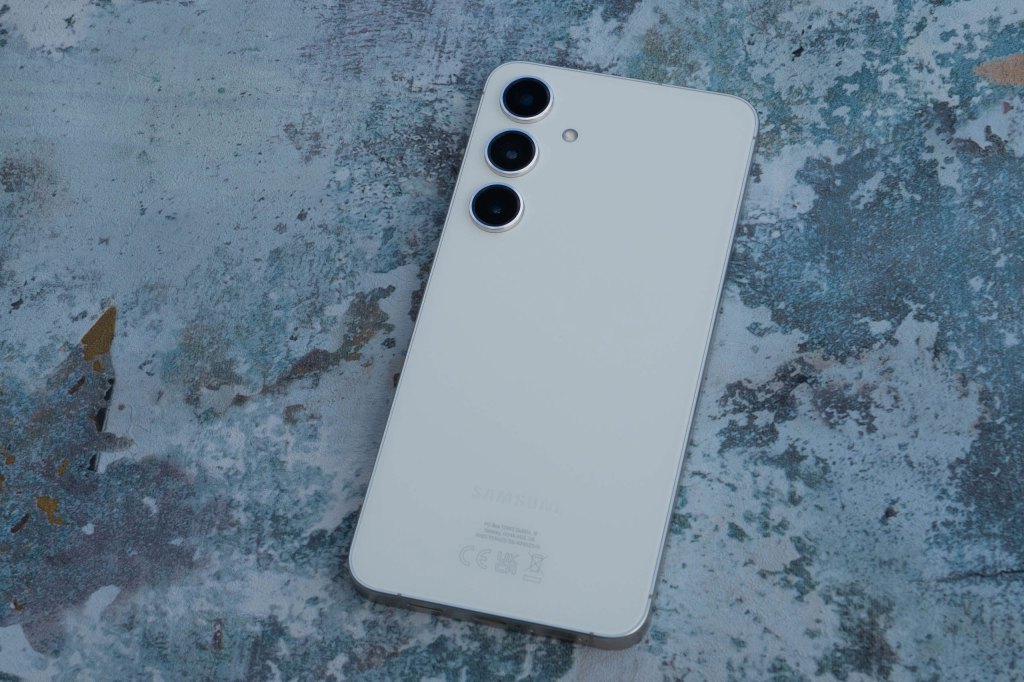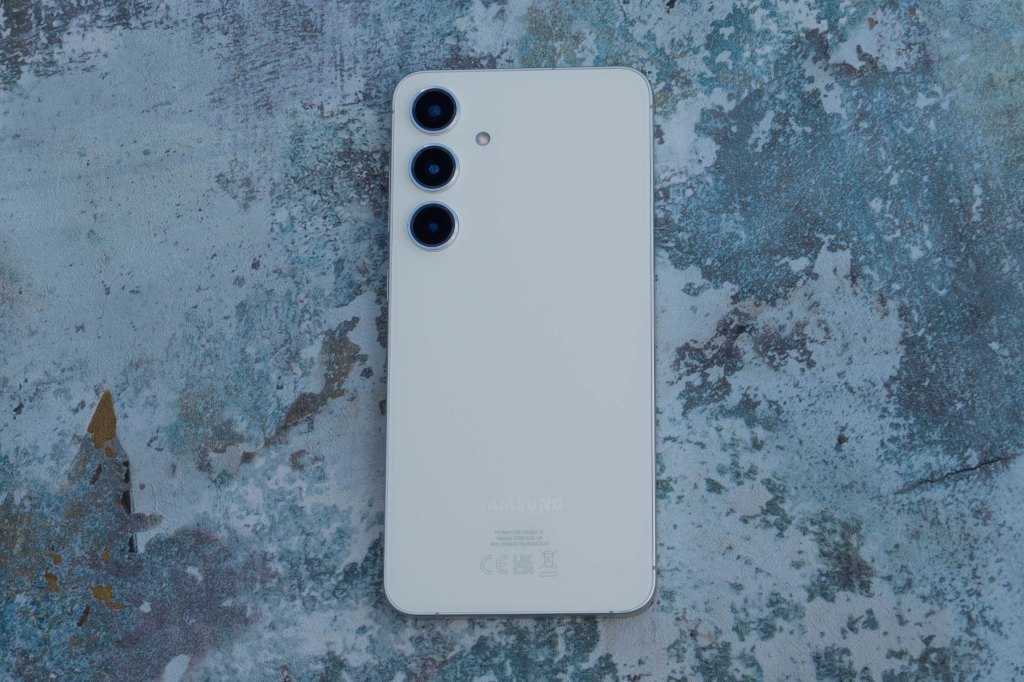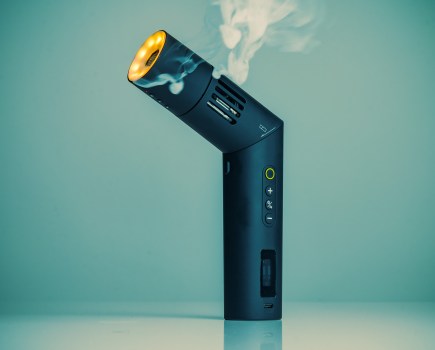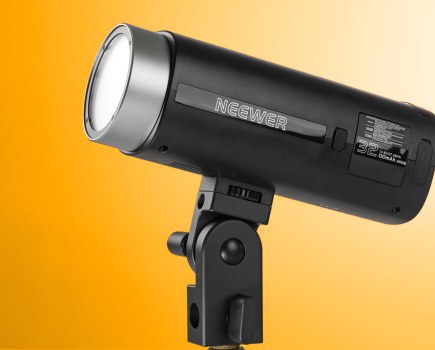The Samsung Galaxy S24+ sits below the S24 Ultra in Samsung’s flagship line-up, but can be considered one of the best camera phones for photography. Its appeal lies with those who want many of the advanced specifications of the Samsung Galaxy S24 Ultra, but at a lower price.
Amateur Photographer verdict
The 50 MP camera performs well in a wide range of situations and delivers excellent quality images. However, a dedicated macro mode would have been welcome at this price.- High resolution main camera
- Selfie camera has AF
- 8K video
- No macro mode
- Lower resolution additional cameras
- High price
At a glance:
- 50MP f/1.8 24mm equivalent main camera, OIS
- 12MP f/2.2 14mm equivalent ultrawide camera
- 10MP f/2.4 67mm equivalent telephoto camera, OIS
- 8K video at up to 30fps
- 4K video at up to 60fps
- 6.7-inch, 3120 x 1440 pixels, 2600 nits peak brightness, 120Hz AMOLED screen
- Operating system – One UI based on Android 14
- Processor – Exynos 2400 for Galaxy
We recently named the Samsung Galaxy S24 Ultra as the best smartphone for photographers, and we gave it the award for the best smartphone of the year, too. But, it’ll set you back all of £1,149 / $1,299. The S24+ is not cheap, but now around £599 – £759 / $800 – $1,000, it’s significantly more affordable than the Ultra.
For the drop in price you get a slightly smaller screen, one fewer camera unit and a marginally smaller battery. You can decide for yourself whether these sacrifices justify the price saving once we’ve explored the differences more closely in this review.
The S24+ follows on from the Samsung Galaxy S23+. Compared to the S23+, you get a slightly bigger and brighter screen, a newer and faster processor, an upgraded battery and a new suite of AI tools.
We review smartphones from the perspective of choosing one for its photography and camera performance. We look at what the Samsung Galaxy S24+ offers, and the features included for photography and video; particularly the cameras, photo editing capabilities, and the output from each different lens.
Features
A triple-lens setup would normally be seen in a smartphone that is top of a company’s line-up. However, with the Samsung Galaxy S24+, you get a 50MP “main” camera, which is 24mm f/1.8 equivalent. This is its main difference from the S24 Ultra, which has a 200MP sensor, but who actually needs that many megapixels in a smartphone camera?
The S24+’s main sensor is joined by a 12MP 14mm f/2.2 ultra wide lens and a 10MP 67mm (3x) f/2.4 telephoto lens with OIS. Here’s another point of difference with the Ultra, which has a fourth 5x telephoto lens. The 3x will likely be more than enough for most cases, but this is a matter of choice.
It’s also worth mentioning that the standard Samsung Galaxy S24, with its 6.2” screen, has the same camera array as the S24+, so much of our review can be considered as a review of both models.
With the introduction of the S24 series, Samsung has jumped aboard the AI bus. The S24+ uses AI when taking photos and has special tools for editing your photos. The shooting tools are said to bring enhancements to night photography, zoom, colour reproduction, HDR (high dynamic range) and noise reduction, none of which you need to actively select.
Editing tools make use of AI to remove reflections, move and replace objects, or even crop and rotate images and generate content to fill any gaps in the frame. All clever stuff, but nothing we haven’t seen before from the likes of Google. Apple have added their own version in their recent iPhone 16.
Other notable specifications of the S24+ include a 4,900mAh battery, wireless and quick charging and further AI tools, including Circle to Search. As is fairly standard nowadays, no charging plug comes in the box – just a USB-C cable that you can use with any existing power supplies.
Handling and design
The design of the S24+ (and the S24) is plain and pedestrian. It has rounded-off square edges, making it arguably a little less sleek than the S24 Ultra. That said, some might appreciate its boxiness. It’s quite similar to an iPhone in design.
At 6.7”, the screen size is on the large side, being in line with other flagships such as the iPhone 15 Pro and the Google Pixel 8 Pro, but slightly smaller than the S24 Ultra, which is 6.8”. Unless you want a very large phone, the S24+ might be preferable, being large but just about manageable.
Size apart, it’s a very bright and clear screen, with images and videos displaying extremely well – as you’d expect for a high-priced phone such as this.
Toughness wise, the S24+ has an Armor Aluminium Frame, plus a Corning Gorilla Glass Victus 2 screen. This should let it withstand normal wear and tear very well, though notably not as tough as the S24 Ultra, which has a Titanium frame and Corning Gorilla Armor. Both are rated at IP68 for waterproofing and dustproofing, meaning you can completely submerge it to depths of 1.5m in fresh water for up to 30 minutes and it should be absolutely fine.
Despite its tough credentials, you might feel more secure purchasing a case for the S24+ as there isn’t one in the box.
Native camera app
The native camera app is pretty comprehensive with the S24+, which is something we’re used to seeing with Android phones, especially Samsung models.
Using the default mode, you get access to the three lenses as well as digital zoom, and can make changes to settings such as aspect ratio and resolution. Tap the settings cog and you can also adjust the amount of AI interference added to photos by selecting “Intelligent Optimisation” and selecting Maximum, Medium or Minimum. Selecting Minimum promises to make the phone quicker in operation, but I can’t say I had any problems in the first place, so I’ve generally been leaving it to Maximum.
If the phone detects darkness, Night mode will automatically switch on. It will also detect faces that are in the frame, allowing you to add a background blur after the fact – handy if you forget to shoot in portrait mode. One big omission here is a macro mode. It’s surprising not to see one on a smartphone of this calibre and price point. It certainly distinguishes the S24+ from the S24 Ultra; perhaps it’s intended to promote sales of the more expensive model.
Other shooting modes include Portrait, which does as you’d expect – blur the background for people (and animal) shots, have a video mode with options up to 8K, and a Pro mode that gives you control over various shooting parameters. You can also download an ExpertRAW add on that gives you even more control – this is worth looking into for more advanced users.
The AI editing options allow you to move and replace objects, or generate additional background if you change or crop an image. In practice, this is fairly self-explanatory and quick, but the results can vary. For example, if you have lots of detail, the finished result is not always the smoothest, but is pretty good for removing a stray tourist from an otherwise clean scene etc.
Any edits made using AI will be watermarked to note that the image has been adjusted with AI – this can’t be removed in the phone, and is included in the image’s metadata. The watermark appears in the bottom left hand corner, so presumably there wouldn’t be much to stop you simply cropping this out.

Image quality and performance
On the whole, images from the S24+ are very impressive and a good reflection of the high price for the unit.
Colours are nicely bright and punchy without being unrealistically vibrant, while the overall impression of detail is very good. Colours are also pretty well matched between the phone’s three different lenses, which is good news. You’ll likely see just a touch more detail in shots taken with the S24 Ultra if you examine closely, but the 50MP available from the S24+ does a very good job for most ordinary situations.

As we usually see, the best results are from the main sensor. At this price point, it would be nice to see higher resolutions from the accompanying lenses, but it’s not a deal breaker. The ultrawide lens produces some pretty good shots, while the 3x zoom is also very usable. Digital zooming is available to get you closer to the action.

At 10x, it’s just about OK, but there is a noticeable smudginess in details. I’d avoid the 20x and 30x options unless desperate.
It’s a similar story when looking at low light pictures. The best results come from the 1x lens, but the ultra wide produces very good results too. Images taken with the 3x lens in low light are probably not going to be very useful for much, while the digital options are very smudgy, even at the 10x option.

Portrait mode gives some good results, both for human and animal subjects. If you scrutinise very closely, there are some slightly unrealistic results around fine hair and the like, but for Instagram and other social media, the results are more than adequate, comparing well with other flagships such as the iPhone 16 Pro Max and the S24 Ultra.

The selfie camera has autofocus, which is always a bonus, as many smartphones rely on fixed. This makes it a great option for those who like to take lots of selfies or vlogs. I like the fact that you can also use the selfie camera with portrait mode, as well as expand to a wider angle to include another person in the shot.

One way to work around the disappointing lack of macro mode is to use the main camera and add your own crop afterwards. However, it’s frustrating that there is no macro mode at this price point. Anyone in the habit of shooting close-ups could be put off buying the S24+.

Video recording up to 8K is available, though most will likely stick with Full HD or 4K. Once you started recording in 8K or 4K, you can’t switch between lenses, which is a shame, but you can in HD. Video quality is very good overall, being fairly smooth and showing off plenty of detail.
Value for money
The Samsung Galaxy S24+ is on the expensive end for a smartphone, putting it in the premium bracket. It compares to similar flagship smartphones such as the iPhone 15 Pro, but is more expensive than the Google Pixel 8 Pro (both with macro mode).
Where you might consider it offers “value for money” is the fact that it is cheaper than its ultra premium stablemate, the S24 Ultra. You can make a decent saving by opting for the S24+ instead. You lose some features, but still get an excellent device.
Thinking purely about the camera – you get a high resolution main camera that is joined by two well-performing additional units, along with all the same AI features as the S24 Ultra.
So, unless you desperately crave the very high resolution sensor of the Ultra or the additional lens, it might be worth sticking with the cheaper version. The lack of a macro mode on the S24+ is significant for a smartphone in this price bracket.
Verdict
The specifications and price point of the Samsung Galaxy S24+ would put it at the top of most other company’s ranges.
If you have your eyes on the S24 Ultra but don’t like the price, it could make a great alternative.
That said, there is quite a bit you’re missing out on if you opt for the cheaper device. The biggest differences are the lack of a super-high resolution main sensor, no dedicated macro mode, and three lenses instead of four.
Most people don’t need 200MP so that’s not a huge loss, while the extra telephoto lens is more a bonus than essential. It’s a bit surprising to not have a macro mode though, especially as most competitors offer this.
Taken in isolation, images and video from the S24+ are very good in a wide range of situations. The device is on the large side, but that makes images look great, and its size is fairly normal by modern standards.
There are some useful updates when compared to the S23+, most notably the addition of AI functionality, both when shooting and editing. None of these are particularly mind-blowing however, and seem a bit “me too” considering what’s already available on the market – it’ll be interesting to see if Samsung makes more of the AI features in the coming months, either via software updates or newer phone models.
Overall, the S24+ is one of the best smartphones for photography that you can currently buy. Excellent, if not revolutionary. It’s priced at flagship level and mostly delivers – it’s just a shame there are a couple of niggles which stop it from being even better.
Specifications
| Ultra-wide camera | 12MP 1/2.55” sensor, 13mm equivalent, f/2.2, fixed focus |
| Wide camera | 50MP 1/1.56” sensor, 24mm equivalent, f/1.8, PDAF, OIS |
| Telephoto camera | 10MP 1/3.94” sensor, 67mm equivalent, f/2.4, PDAF, OIS |
| Front selfie camera | 12MP, 26mm equivalent, f/2.2, Dual Pixel PDAF |
| Display | 6.7-inch Dynamic AMOLED 2x Quad HD+ (3120 x 1440) 120 Hz |
| Operating system | Android 14 |
| Dimensions | 158.5 x 75.9 x 7.7mm |
| Weight | 196g |
Related reading:

